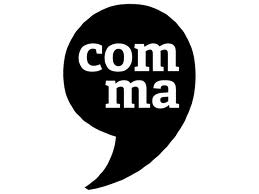Archive for 'English Grammar'
Common Comma Usage Posted by Gabriele on Sep 14, 2012
The last few days we have looked at rules related to capitalization along with some practice in this area. Today I thought we would look at another aspect of English grammar, commas. I will admit that the usage of commas in English is not my strong point, but I’ll do the best to explain…
Capitalization Practice Posted by Gabriele on Sep 13, 2012
Yesterday, I wrote a post highlighting the major rules of capitalization in English. Today is your chance to practice these rules! I have a number of sentences below in which you have to find all the words that need to be capitalized and capitalize them. The answers to this exercise are below. And here is…
Capitalization Rules Posted by Gabriele on Sep 12, 2012
Here is a little review of the rules of capitalization in English. The following is a list of when you should use capitalization. Always capitalize: The first word of a sentence, Example: When is it time to go? The pronoun “I”, Example: James and I will be visiting Germany next month. Proper nouns (the names…
Making irregular plural nouns in English Posted by Gabriele on Sep 2, 2012
Creating plurals nouns in English is easy, all you have to do is add -s to the end of the nouns (+ s). For example, girl → girls and boy → boys. Well, it is almost that easy. Some nouns you have to add -es to the end of the word (+ es). And then…
Expressing degrees of certainty with modal verbs and adverbs Posted by Gabriele on Aug 19, 2012
Today I would like to talk a little about expressing different degrees of certainty using modal verbs and adverbs. To keep this discussion as simple as possible I will only be using the modal verb ‘will’, but I will be introducing a number of adverbs that can be used to express degree of certainty with…
Verb Tenses: Present Perfect Simple vs. Present Perfect Progressive Posted by Gabriele on Aug 17, 2012
Today we are taking a look at two closely related verb tenses in English, these tenses are: present perfect simple and present perfect progressive (also called: present perfect continuous). Both of these tenses are used to express that an action began in the past and is still going on or has just finished. In many…
May, Might and Can Posted by heather on Jul 4, 2012
May and might – who knew that two words could create so much confusion when it comes to learning the English language. Yet, these two words do just that. So what is the difference between may and might? Well, not too much actually. may = suggests that it is possible that the action will occur…



